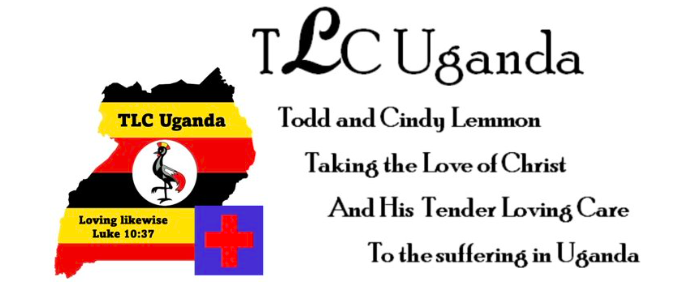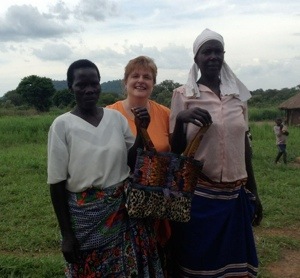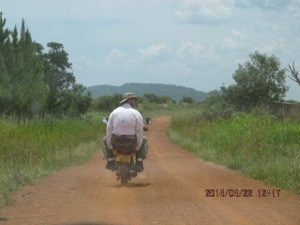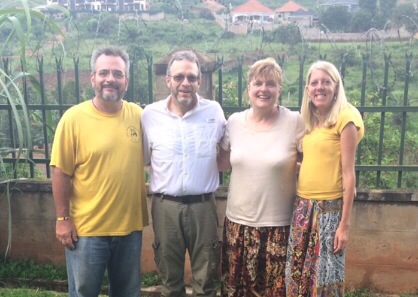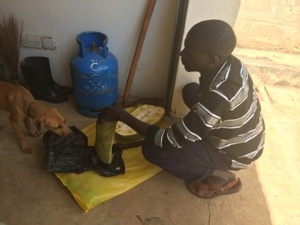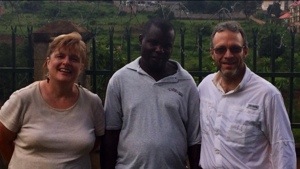I haven't written since our trip for several reasons. First, I had so much to say while we were in Uganda, I feel as though I should either come up with something profound to say or keep quiet. Second, school is in full swing and I've been busier than I could have imagined I would be during a Summer semester. Last is the least valid reason of all but probably the weightiest, and that is because we still just don't know where our piece will fit into the whole Uganda puzzle.
From where I am, isolated in my prerequisite studies, a nursing mission in Uganda appears small in my window. It is no less a priority, no less real, and no less the path I am following at God's direction; I just feel so far removed from Uganda and her children. I remain connected to my friends I made in country by way of Internet, prayer, and a common love for the same people, and that helps me keep focused on the mission rather than the baby steps toward it I am making, but progress feels slow and our deployment to the mission field far removed. Proverbs 13:12 says, "Hope deferred makes the heart sick, but a longing fulfilled is a tree of life." I like "tree of life" references - maybe it's the Lemmon in me - but I'm somewhere in that deferral that makes for heart-sickness right now. It's not a condition of being lost, afraid, or doubtful; it's just that 2021 is so many pages ahead in the calendar.
I'm in good company. Jacob (aka Israel) had to work seven extra years to earn his bride, Rachel. Noah, wasn't told to go sailing; he was told to build an ark. With the world mocking him, he stacked gopher wood until he had the resources to begin scraping, planing, boring, and fitting the logs together into a floating fortress that would be seventy-five years on dry land before the first drop of rain fell on it.
I, too, have received a share of mocking, of condescending interrogations, missiles of doubt fired from people, some nurses themselves, who may mean well but tend to emphasize obstacles rather than successful experiences, strength, or hope. The shock of disbelief that is typical of most people who hear our plans for relocation and service overseas is so staggering that I tend to keep the long-term plans to myself in casual conversation and just say, "I am studying to become a missionary nurse," to which responses are usually more positive. Leaving off the word "missionary" saves me even more interrogations, and usually evokes a response about a relative who is, was, or wants to become a nurse, but removes me even farther from the end goal of treating and educating Ugandans in abundant living in Christ Jesus.
I took a practice nursing school entrance exam, the HESI A2, this morning to see what kind of things I can expect and to feel closer to the process. I was encouraged with my results but received valuable feedback concerning what needs attention. I visited the websites and Facebook pages of my missionary friends, and rejoiced in their successes, praying for their ministries and the people they serve. In my bedroom, a handmade Ugandan souvenir hangs on my wall, reminding me to "Always remember Uganda." I cannot forget her! She's in my heart, which is torn to be this far removed.
Noah did everything just as God commanded him. (Genesis 6:22 NIV)
It was not for Noah to pump water up the hill or perform test-trials on his workmanship. He was not required to study meteorology or predict weather patterns. His job was to build an ark. Mine is to become a nurse. For now, I don't get to know the end-game, and I am not yet responsible to guess it. Trivial though daily assignments may seem, they are steps along the path of obedience. While I have no child in my arms, and no soul to heal just yet, I do have homework, and no task is irrelevant when I am doing it in obedience to the Lord. I will look to Noah's example as I continue on, as removed from Ugandan souls as a ship on a dry hill, and do what comes next, contenting myself in the knowledge that I am doing my Master's will.
